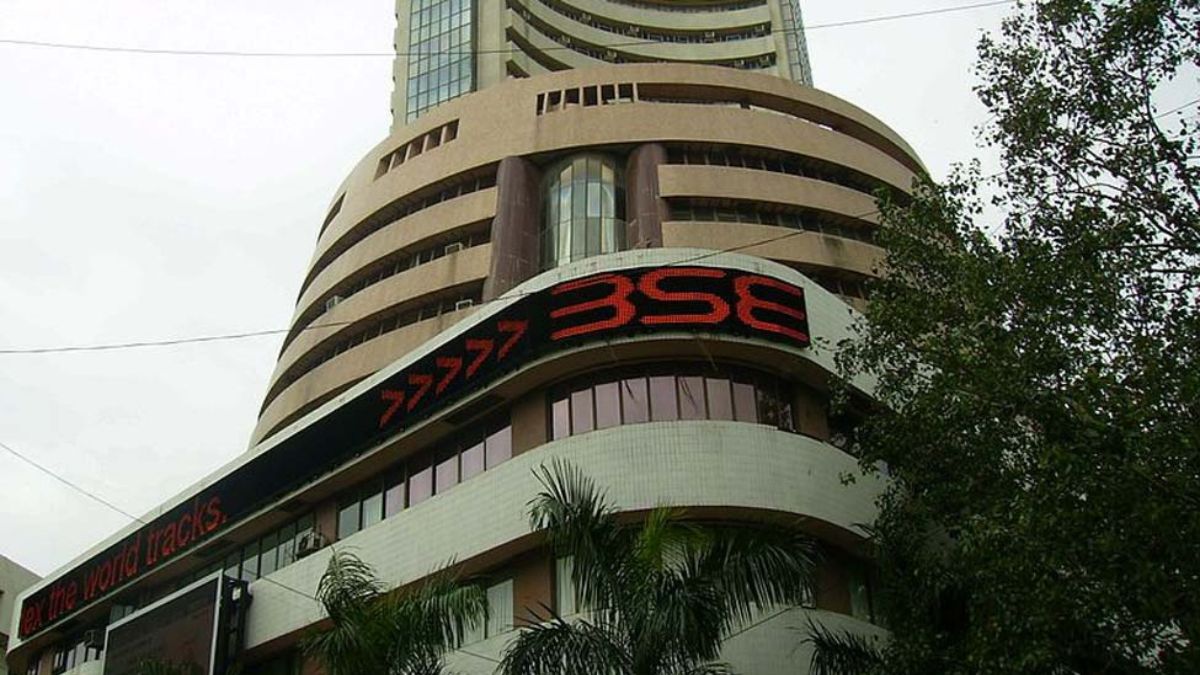October marked the auspicious period of Navratri, but the festive cheer seems to have eluded the equity market. Foreign portfolio investors sold more than Rs 72,000 crore in the equity market so far this month, the highest ever for a month in over four years. In fact, the sell-off this time around was even more than the Rs 62,000 crore worth of shares they sold back in March 2020, when the world was grappling with the COVID-19 pandemic, and India had imposed a complete lockdown.
On the back of the relentless selling by foreign institutional investors, the benchmark BSE Sensex slipped around 5 per cent, and the BSE Smallcap index fell over 6 per cent this month till October 22. The FII selling has been partly offset by continued inflows into domestic mutual funds. SIP (systematic investment plans) inflows per month have now topped Rs 24,000 crore, which, in a way, has cushioned the fall in the market.
ALSO READ: F&O trading can't be a national pastime, says SEBI member Ashwani Bhatia
What is driving the FII selloff?
A major reason that triggered the FII selloff was the recent stimulus measures announced by China. The measures, which included interest rate cuts by the Chinese central bank, saw a lot of foreign fund flows moving there as the valuations looked attractive. On the other hand, valuations in many pockets of India's stock market have been expensive. That, coupled with comparatively slower earnings growth in India and signs of looming economic slowdown in the coming months, dampened the mood Motilal Oswal Financial Services recently forecasted earnings of Nifty 50 companies to grow 5 per cent year-on-year in the July-September quarter, the lowest in 17 quarters.
Escalating geopolitical tensions in West Asia and the looming Presidential elections in the United States, too, added to the uncertainties. However, despite the near-term worries, foreign investors still remain constructive on India in the long-term, opined Kaustubh Belapurkar, director and manager, Research at Morningstar Investment Research India.
"China's been beaten down for long, so there's always a valuation play at the heart of managers. So there would be some reallocation that potentially can happen, has happened, back into the Chinese market, but I think India still remains very positive for managers from the long run," Belapurkar said.
While FPIs might have reduced some allocation to India, long-term funds are still looking to enter India, he noted.
The US Federal Reserve recently announced a sharp 50 basis points interest rate cut, and another 50 bps rate cut is expected by the end of December, with more cuts to follow in 2025 as the American central bank's focus shifts to protecting growth while inflation has cooled.
ALSO READ: Bear attack Investors poorer by Rs 9.19 lakh cr in single day as markets crash
Typically, when interest rates come down in markets like the US, demand for risk assets goes up. Generally, in such scenarios in the past, flows to emerging markets—including India—have picked up, although that may not happen overnight, he said.
"Obviously there's that whole risk of the US election. Once things around that stabilize, you might see that risk trade playing off again in markets like India. Especially when you see interest rates coming down, risk assets will become more and more attractive from a US investor's perspective. And you might see, potentially, a reasonable amount of capital coming back from FIIs back into the Indian markets," stated Belapurkar.
While valuations have been a concern for some time if the local flows continue to remain strong, valuations may continue to remain elevated, he added.
"You pay a little bit of an excess for growth at times," pointed Belapurkar.
'Investors chasing funds'
As domestic fund flows have surged over the last few years, new fund launches have also picked up in a big way, with sectoral and thematic funds also gaining traction. Investors chasing such funds worry Belapurkar, and he feels investors, especially those who have only recently started their investment journey, should not get swayed by recent past returns.
"If you invest into a sector, thinking that it's delivered 50 per cent over the last one year, it's actually the worst time to get involved. Sector rotation happens. We saw that with technology just post-COVID where it was the best-performing sector, and then it lagged significantly. Most of the money came into tech funds after the run-up happened. And history is kind of repeating itself. So I think that's something investors need to keep in mind. Don't chase recent performance especially when it comes to sector themes. Because you can get it horribly wrong," he stressed.
ALSO READ: Growing youth population, high employment to drive GCC retail market: Lulu Retail
How does he see domestic markets panning out over the next 6-12 months?
Belapurkar feels there could still be minor corrections, especially if FIIs continue to sell massively. He doesn't expect any sharp drop unless, of course, geopolitical tensions escalate and a full-fledged war breaks out, and then there will be further flight of global capital. But, such events are unpredictable.
Investors, though, need to lower their returns expectations and can't bet on extraordinary returns continuing.
"You have had this crazy bull run, when you put money in any fund, you made 20-30-40 per cent, whatever. Don't expect that this is going to continue to perpetuate. Returns will normalise. If you look at longer-term returns for any market cycle, 12-15 per cent in equities is what it will come down to," said Belapurkar.



